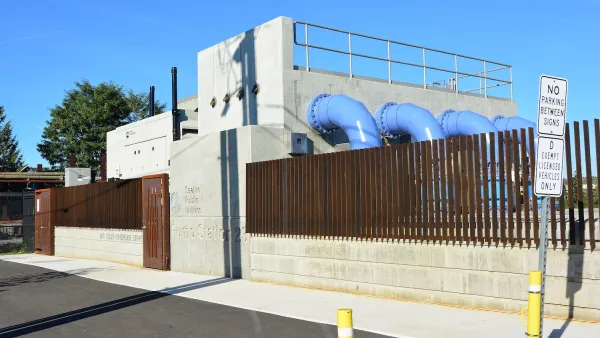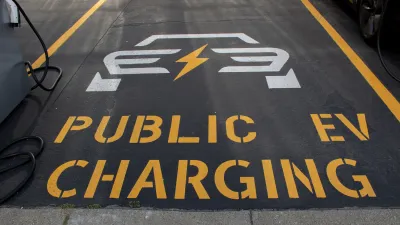Chicago is using pervious pavements and reflective materials on its 1,900 miles of alleys to reduce flooding, cut demand on storm sewers, and decrease the city's urban heat island effect. The program is so successful that they are expanding it.
Back in 2004, Chicago's Department Of Transportation had no concept of how to build roads and alleys using pervious materials.
Janet L. Attarian writes, "To overcome this obstacle, the department led an aggressive design and investigative process that involved collecting best practices and sample specifications from around the country. CDOT developed its own specifications through a collaborative process involving CDOT staff, the design team, and a materials testing consultant. Together, they established a series of goals, tested the ideas in a laboratory, and then reviewed the results until the final mix designs, materials, and methods were solidified."
The DOT embarked on a number of pilot projects to test out their new-found knowledge, detailed in the full article.
Thanks to Triskele Jim
FULL STORY: Greener Alleys

Maui's Vacation Rental Debate Turns Ugly
Verbal attacks, misinformation campaigns and fistfights plague a high-stakes debate to convert thousands of vacation rentals into long-term housing.

Planetizen Federal Action Tracker
A weekly monitor of how Trump’s orders and actions are impacting planners and planning in America.

In Urban Planning, AI Prompting Could be the New Design Thinking
Creativity has long been key to great urban design. What if we see AI as our new creative partner?

King County Supportive Housing Program Offers Hope for Unhoused Residents
The county is taking a ‘Housing First’ approach that prioritizes getting people into housing, then offering wraparound supportive services.

Researchers Use AI to Get Clearer Picture of US Housing
Analysts are using artificial intelligence to supercharge their research by allowing them to comb through data faster. Though these AI tools can be error prone, they save time and housing researchers are optimistic about the future.

Making Shared Micromobility More Inclusive
Cities and shared mobility system operators can do more to include people with disabilities in planning and operations, per a new report.
Urban Design for Planners 1: Software Tools
This six-course series explores essential urban design concepts using open source software and equips planners with the tools they need to participate fully in the urban design process.
Planning for Universal Design
Learn the tools for implementing Universal Design in planning regulations.
planning NEXT
Appalachian Highlands Housing Partners
Mpact (founded as Rail~Volution)
City of Camden Redevelopment Agency
City of Astoria
City of Portland
City of Laramie





























